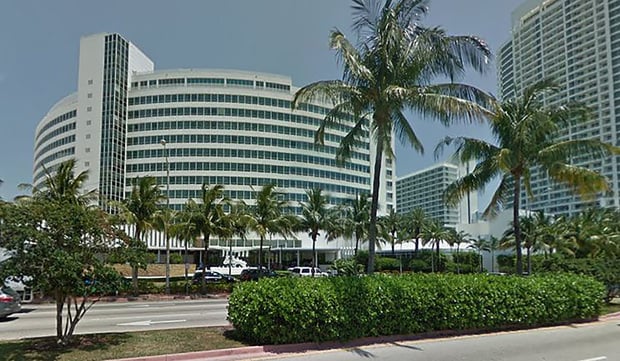The year was 2002. That was quite a rude awakening for not only me, but every landlord in our nation's capital. What do you do with all that vacant space in such a short period? The answer: Lower your rental rate. Tenants began filling vacancies and getting better office space. It was a flight to quality.
But net lease investments are different when considering quality, which is a popular word these days. In the net lease investment industry, we're typically not discussing the leasing of a single-tenant office building, a large warehouse or a small retail center. We're discussing investments--the purchasing of assets for an immediate return.
So how does one define a flight to quality when considering a net lease? It depends who is buying.
People want more for their money in today's market. However, quality varies in any investment, let alone net leases. The first quality adjustment we are seeing is a desire for choice real estate. Location is still of the utmost importance to investors.
Buying a Walgreens location in Dubuque, IA is different than buying one in New York City. You may be getting the same credit and same lease terms, but the real estate has become a big consideration for investors today.
The investor has to know that at the end of the day, they are still buying real estate. Consider the worst-case scenario: If my great tenant leaves, what am I left with? Where is the building? What is around the site? How can I access it? We are all real estate professionals, but the quality real estate was forgotten for many years.
Additionally, investors are focusing more on the credit of their tenant. Gone are the days that you can put a very aggressive cap rate on a one-unit franchise operator of a concept that you have never heard of before and close the transaction in 21 days.
The investor's flight to quality for tenancy has become drastically more apparent in the last 12 months. In 2008, when it truly did seem that the sky had fallen and was actually beginning to dig a hole to the center of the earth, no one was really sure of how to rate a company's credit. Those institutions that had a credit rating by a major agency, such as Standard & Poor's or Moody's, were being questioned because they got so many things wrong.
Companies with "A" credit or better were going bankrupt or being downgraded so fast that it was hard to keep track of them. The term "investment grade" almost became a joke. But now that the economics of the industry have calmed down and recovery is under way, the credit of a company seems to have taken on a new meaning.
History has proven that credit matters. Over the last half-decade, it was proven that if you had a net lease investment, you could get financing. Now, you truly need a credit rating of "A" or better to get above-average financing. Otherwise, you're left with a full recourse loan with a very low loan-to-value ratio.
Credit tenants are still comparably garnering somewhat stable cap rates, but those that lack the financial reporting worthy of an overly scrutinized underwriting process are seeing their returns rise and prices lowered because of the perceived risk. The credit of the tenant has seen new meaning and the credit tenants are sought out more so now than ever before.
Lastly, the lease terms are becoming a talking point that quality seekers seem to be discussing more. The words "absolute" and "bondable" are heard more and more as investors seek new purchases. Triple net assets are trending to become, well, triple net.
The mere definition of the investment class started with the understanding that the tenant would be responsible for taxes, insurance and maintenance. Yet somehow over time, triple net became defined however you wanted to define the structure of the lease. Maybe the landlord is responsible for the roof and structure of the building, but not the daily maintenance. Or maybe the HVAC system falls on the landlord, but no other items.
Whatever the case may be, triple net became double net, single net or half a net. If there is some responsibility of a landlord, then the investor wants to be compensated for it with a higher return. So when an investor says that they want a triple net investment, they want to sit back, collect a check and never even get a phone call about the property. They want to think of the property once a year when they are filing their tax returns. The flight to quality is in the lease terms and investors are seeking out the absolute, most passive form of real estate ownership.
But a true flight to quality still depends on the individual investor. We have to realize quality can be defined a number of different ways. But net lease investments have truly seen a change in recent months, with scrutiny being placed on the attributes of an investment that haven't been considered in years.
One may be able to take a great parcel of land but have it encumbered with an old and outdated building with a terrible credit tenant and turn it into a goldmine over time. But today's investor has a somewhat different destination--a nonstop flight to an oasis called "quality."
The views expressed here are those of the author and not of Incisive Media or its publications.
David Sobelman is executive vice president of Calkain Cos. in Tampa. He can be reached at [email protected].
Want to continue reading?
Become a Free ALM Digital Reader.
Once you are an ALM Digital Member, you’ll receive:
- Breaking commercial real estate news and analysis, on-site and via our newsletters and custom alerts
- Educational webcasts, white papers, and ebooks from industry thought leaders
- Critical coverage of the property casualty insurance and financial advisory markets on our other ALM sites, PropertyCasualty360 and ThinkAdvisor
Already have an account? Sign In Now
*May exclude premium content© 2024 ALM Global, LLC, All Rights Reserved. Request academic re-use from www.copyright.com. All other uses, submit a request to [email protected]. For more information visit Asset & Logo Licensing.








